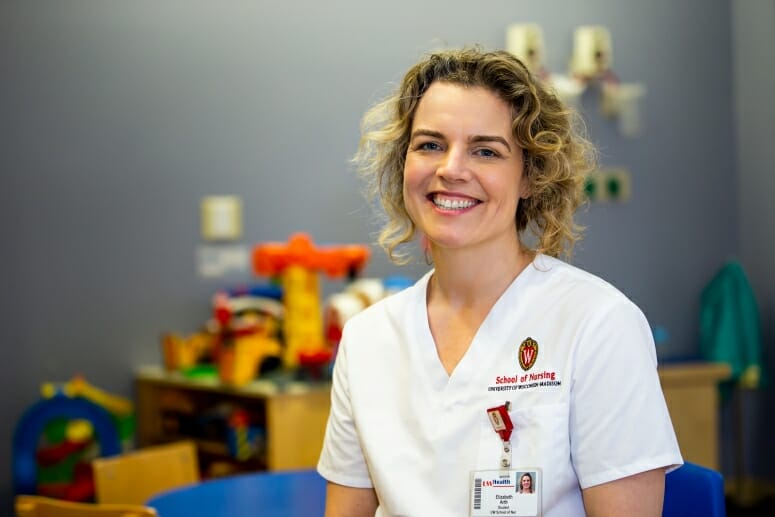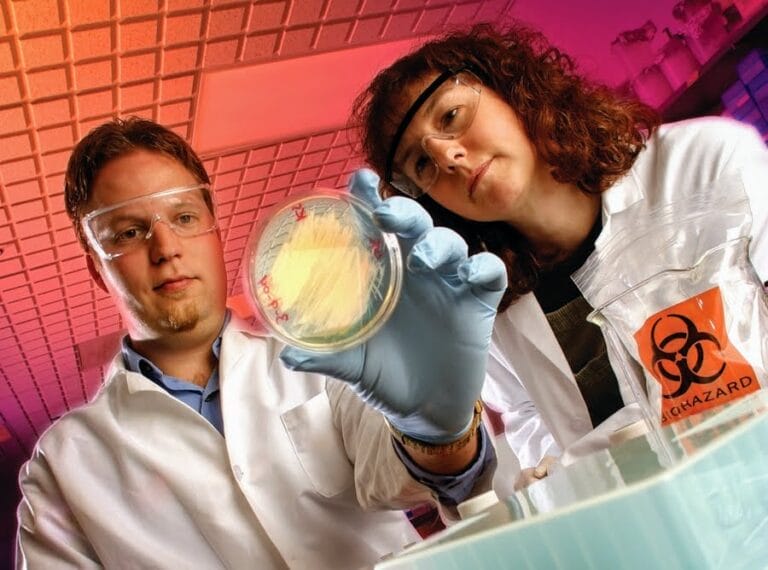
Accelerated bachelor’s helps student transition to nursing career quickly
Elizabeth Arth’s life changed the day her son Henry sustained a spinal cord injury from a bike crash in 2015.
As 14-year-old Henry healed from his injuries and relearned to walk at the American Family Children’s Hospital, Arth was by his side — not only providing the support he needed, but closely watching the nurses who helped him along his journey.
“I’d had experience with childbirth education and was always interested in health science,” Elizabeth says, “but there was a moment in the hospital where I started to look at what the nurses were doing, how they were caring for my son and our family. I decided during that time to go to nursing school.”
Arth, a Madison resident who was 39 at the time of her son’s accident, decided to switch careers — and she wanted to do it quickly. She enrolled in the first class of the Accelerated Bachelor of Science in Nursing (ABSN) at the University of Wisconsin–Madison School of Nursing, a fast route to professional practice for anyone with a bachelor’s or graduate degree in a non-nursing discipline.
A swift career change
The UW–Madison Accelerated Bachelor of Science in Nursing “covers the same nursing topics as our four-year, undergraduate degree,” says Wendy Crary, program coordinator at the School of Nursing.
The ABSN allows students to complete a nursing degree in just 12 months. Applicants need a bachelor’s degree from an accredited institution, a 2.75 GPA, and seven science prerequisites. Between course work and five clinical placements, students are engaged for 50 hours a week. Graduates are eligible to test for an RN license. Taking classes running from May to May, students enter the program as part of a cohort who support and learn from each other.
Arth graduated in May of 2019, along with 31 others in her class. She spent her last clinical rotation on the same floor of American Family where she spent many anxious days watching Henry relearn to walk, gaining knowledge from the surgeons, physical therapists and the nurses who inspired her to get her degree.
A career in demand
Not only does the one-year program offer a second chance for adults seeking a satisfying, well-paying job, it’s also designed by the School of Nursing to confront a shortage of nurses in Wisconsin. The Wisconsin Center for Nursing’s 2016 workforce report projected a statewide shortfall of nearly 23,000 nurses by 2035.
“The nursing shortage is there, it’s present, and it’s increasing,” says Darby Sugar, student services coordinator and academic advisor at the School of Nursing. “We are consistently looking at ways to help with the shortage and increase our class sizes.”
With 86% of UW–Madison School of Nursing graduates living and working in the state, ABSN alumni directly address the Wisconsin nurse shortage. As Arth and the class of 2019 enter the workforce, they’ll be making a difference for communities across Wisconsin, and the world.
Learn more about the Accelerated Bachelor of Science in Nursing, call 608-263-5200 or email [email protected] for more information.
Published on Aug 19 2019
Last Updated on Jul 11 2024
Categories: Professional Degrees & Certificates
Tags: pdc-blog
Previous Post
How job searching has changed over the last decade


